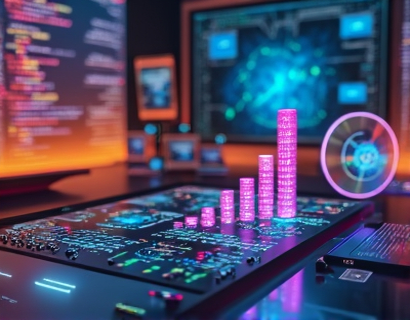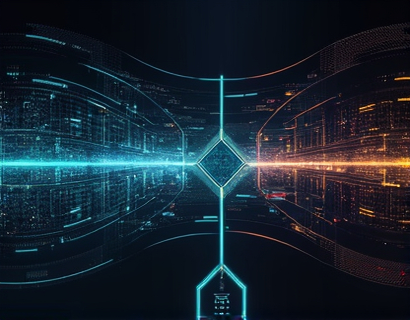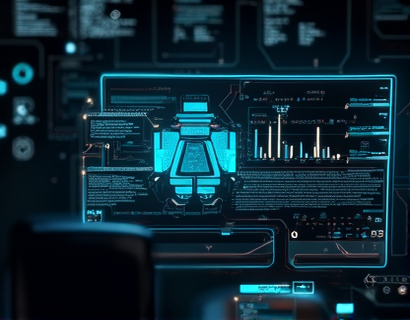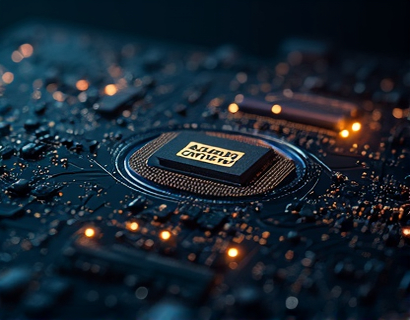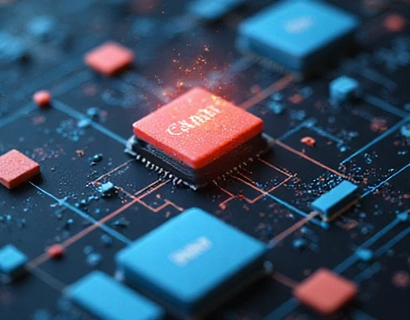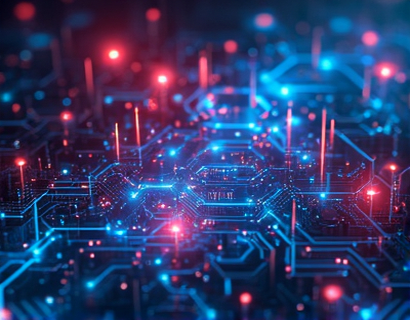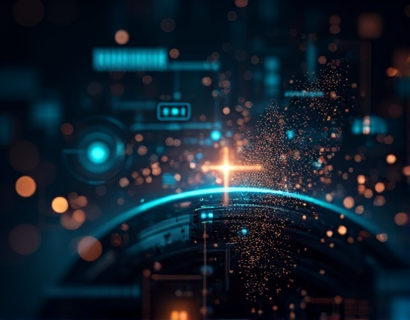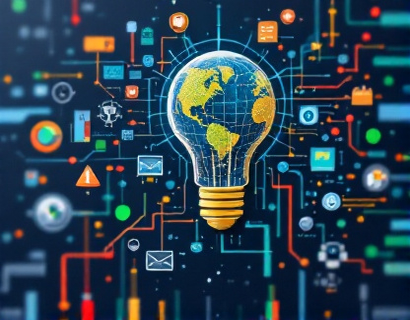Decentralized Productivity: Harnessing AI and Crypto for Next-Gen Workflow Innovation
The integration of cryptocurrency and artificial intelligence (AI) is ushering in a new era of productivity and workflow innovation. This transformative blend is redefining how professionals approach tasks, collaborate, and manage their digital environments. By leveraging decentralized applications and advanced AI tools, individuals and organizations can unlock unprecedented efficiency and enhance user experience. This article delves into the profound impact of these technologies, exploring how they are reshaping the modern landscape of digital transformation.
Decentralized applications, or dApps, operate on blockchain networks, offering a level of transparency, security, and autonomy that traditional centralized applications cannot match. These applications are built on smart contracts, self-executing contracts with the terms directly written into code. This ensures that transactions and processes are automated, trustless, and verifiable without the need for intermediaries. The decentralized nature of these apps means that data and control are distributed across a network, reducing the risk of single points of failure and enhancing resilience.
One of the key advantages of decentralized applications is their ability to facilitate peer-to-peer interactions without central authority. This is particularly beneficial in collaborative environments where multiple parties need to work together seamlessly. For instance, decentralized project management tools can enable teams to track progress, assign tasks, and manage resources in a transparent and secure manner. These tools eliminate the need for centralized servers, reducing latency and increasing accessibility. Users can access and contribute to projects from anywhere in the world, ensuring that collaboration is not hindered by geographical barriers.
AI, on the other hand, brings a different set of capabilities to the table. Advanced algorithms and machine learning models can analyze vast amounts of data to identify patterns, predict outcomes, and automate repetitive tasks. When combined with the decentralized infrastructure, AI can enhance the functionality of dApps, making them smarter and more efficient. For example, AI-powered chatbots can be deployed on decentralized platforms to provide 24/7 customer support, handle inquiries, and offer personalized recommendations. These chatbots can operate independently, learning from user interactions and improving over time without the need for constant human intervention.
The synergy between AI and decentralized technologies is particularly evident in the realm of data management. Decentralized data storage solutions, such as InterPlanetary File System (IPFS), allow for the secure and efficient storage of large datasets. AI algorithms can be used to optimize data retrieval and processing, ensuring that information is accessible and usable in real-time. This is crucial for applications that require rapid data analysis, such as financial trading platforms or real-time analytics dashboards. By leveraging decentralized storage and AI-driven analytics, organizations can make data-driven decisions more quickly and accurately.
Another area where AI and decentralization intersect is in the domain of identity and access management. Traditional identity verification processes are often centralized and vulnerable to breaches. Decentralized identity solutions, powered by blockchain and AI, offer a more secure and user-controlled approach. Users can create and manage their digital identities, granting or revoking access to various services as needed. AI can enhance this process by detecting anomalies and preventing unauthorized access, ensuring that only legitimate users can interact with sensitive data.
The combination of AI and decentralization also has significant implications for supply chain management. Decentralized tracking systems can provide real-time visibility into the movement of goods, from production to delivery. AI algorithms can analyze this data to predict delays, optimize routes, and reduce costs. This level of transparency and efficiency is particularly valuable in industries where supply chain disruptions can have severe consequences, such as pharmaceuticals or food distribution. By integrating AI with decentralized tracking, businesses can achieve end-to-end visibility and control, enhancing overall operational performance.
In the context of content creation and distribution, decentralized platforms are revolutionizing how creators monetize their work. Traditional platforms often take a significant cut of the revenue, leaving creators with limited earnings. Decentralized platforms, supported by blockchain technology, allow creators to retain full control over their content and receive direct payments from consumers. AI can further enhance this ecosystem by analyzing audience preferences and recommending content to maximize engagement and revenue. This creates a more equitable and sustainable environment for content creators, fostering innovation and diversity in the digital space.
The financial sector is another area where the integration of AI and decentralization is making waves. Decentralized finance (DeFi) platforms offer a range of financial services, from lending and borrowing to trading and asset management, all without traditional financial intermediaries. AI algorithms can be used to optimize trading strategies, manage risk, and provide personalized financial advice. This democratizes access to financial services, making them available to a broader audience and reducing barriers to entry. The transparency and security of blockchain ensure that transactions are trustworthy and auditable, building trust among users.
For professionals and businesses looking to harness the power of decentralized productivity, there are several key considerations. First, understanding the underlying technologies is crucial. While the benefits are clear, the complexity of blockchain and AI requires a certain level of technical knowledge. Organizations should invest in training and education to ensure their teams can effectively leverage these tools. Second, security remains a top priority. Although decentralized systems are generally more secure, they are not immune to vulnerabilities. Implementing robust security measures and staying updated on best practices is essential.
Another important aspect is the choice of decentralized platforms and tools. With the rapid evolution of the space, it's important to select solutions that are scalable, user-friendly, and well-supported by the community. Engaging with active developer communities and participating in forums can provide valuable insights and support. Additionally, considering the ecological impact of blockchain technologies is increasingly important. Opting for platforms that prioritize sustainability and use energy-efficient consensus mechanisms can help minimize the environmental footprint.
Looking ahead, the future of decentralized productivity is promising. As more organizations adopt these technologies, we can expect to see further innovations and integrations. The development of interoperable blockchain networks will enable seamless interactions between different dApps, creating a more cohesive and functional ecosystem. Advancements in AI, such as edge computing and quantum machine learning, will enhance the capabilities of decentralized tools, making them even more powerful and accessible. The convergence of these technologies will continue to drive productivity gains and open up new possibilities for collaboration and innovation.
In conclusion, the combination of AI and decentralization is transforming the way we approach digital workflows. By leveraging the strengths of both technologies, professionals and organizations can achieve higher levels of efficiency, security, and user experience. As the landscape continues to evolve, embracing these innovations will be key to staying competitive and relevant in the digital age.




